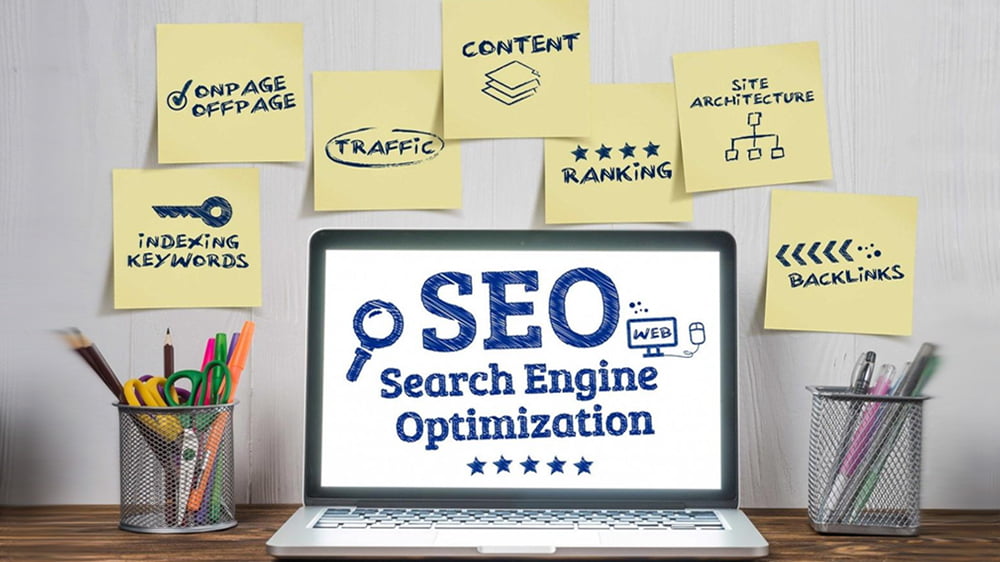When it comes to SEO, there are several factors you need to take into account. And not all SEO is equal, so you need to find SEO that works for you. If you don’t have experience with SEO, you may want to research SEO services and hire an SEO professional who can explain the difference between a website and a landing page as well as what is right for your business.
What to Expect When Working with an SEO Expert
 When working with an SEO consultant, don’t just give them the work and send them on their way. At first, you may feel overwhelmed when you hear terms like “link building,” “white hat,” and “content framework” come up, but be open to learning from the consultant. If you feel that you are unable to learn from them, take an SEO course or look for some SEO training.
When working with an SEO consultant, don’t just give them the work and send them on their way. At first, you may feel overwhelmed when you hear terms like “link building,” “white hat,” and “content framework” come up, but be open to learning from the consultant. If you feel that you are unable to learn from them, take an SEO course or look for some SEO training.
Take in as much information as you can, and pay attention to the SEO techniques and trends the consultant recommends. Discuss your SEO strategy together so you understand it fully. This will help ensure that the consultant includes the information that you absolutely want and focuses on items you wish to emphasize.
If there are particular topics you want highlighted, key phrases can be used so that search engines recognize that your page is talking specifically about those topics. Being proactive will help you end up with an SEO campaign that you are truly comfortable with and admire.
Website SEO
There are many different areas of SEO when it comes to the website itself, and often some of these get overlooked—such as using meta tags, for example. As mentioned earlier, you need to consider what kind of site you want. Are you going to create a landing page, or will you have a full website with blog posts and other great content?
By having more content on your site, you will have the ability to pull in more traffic and help boost your ranking on search engines. Each page of your website will also have its own page SEO, so that to search engines, your website looks like multiple websites.
To ensure quality content on your website, you don’t want to type out long URLs when you link to other websites. Instead, choose a good word or phrase to use as anchor text, or some text your reader will notice, which will open an internal page when clicked on.
Another key area that should be considered is local SEO tactic, even if location is not noted on the website explicitly. This is also useful to businesses that have a physical location. Adding geographic details will help people who are looking for a nearby company and also help your website’s Google ranking.
Marketing
 When it comes to marketing, there are several types: content marketing, digital marketing, and social media marketing. While all three marketing styles are great, not all three are great for everybody.
When it comes to marketing, there are several types: content marketing, digital marketing, and social media marketing. While all three marketing styles are great, not all three are great for everybody.
To create SEO that works, you’re going to need to know your target audience and their methods of receiving information. For example, Facebook and Twitter have different user demographics. Facebook users tend to be older and check the platform multiple times a day. Twitter users, on the other hand, are younger, and they’re online consistently, checking updates and getting instant information. In most cases, Twitter isn’t a good choice for an SEO platform.
Traffic
Where are your website’s visitors coming from? When it comes to traffic, there are several different types.
Organic Traffic
Organic traffic reaches a website or blog via unpaid search results. This occurs when someone comes across your site based on a Google search result.
Paid Traffic
This is exactly how the description sounds: Paid traffic comes in when someone reaches a website by clicking an ad on a platform like Google or Facebook.
Backlink Traffic
Backlink traffic takes place when users link directly from other people’s sites. This is the most valuable traffic you can get. It gives your site more credibility, which will help with your ranking factor.
You may have noticed that both paid and unpaid traffic shows up in a Google search. When a person enters relevant keywords on Google, the results page (SERP) usually displays organic, paid search results as well as pay-per-click (PPC) ads.
SEO Rankings
 There are several aspects that can affect SEO ranking. Some ranking factors involve science, while others are completely out of your control. For this reason, SEO rankings may quite possibly be the most complicated factor when implementing SEO.
There are several aspects that can affect SEO ranking. Some ranking factors involve science, while others are completely out of your control. For this reason, SEO rankings may quite possibly be the most complicated factor when implementing SEO.
To start, you’ll need to do some keyword research to uncover how people are trying to find what your company offers. Then, you’ll want to line up with that research and include relevant, competitive keywords to show up in SEO rankings.
Just like in a regular keyword search, SEO keyword research is necessary, as it reveals the background data that affects SEO and creates higher rankings. Knowing which words the search engines look for and how those terms are ranked is important for the success of your site.
Ongoing Site Maintenance
If your site is up and running, this doesn’t mean that it’s permanently finished. You’ll continue to be in touch with your consultant as they move into the technical SEO phase.
Even before launching, the consultant should look into SEO techniques like mobile integration, YouTube SEO, and opportunities for lengthier content. The longer a visitor stays on your website, the better its ranking and the more diverse its backlink portfolio.
To ensure that your site is running smoothly and that everything looks as it should, you’ll want to have different analyses done regularly. Make sure that you optimize page speed, analyze backlinks, and conduct competitor analysis.
In addition to ongoing site maintenance, be sure to stay up-to-date on Google’s changes, since the company has a tendency to adjust how their SEO works. Some changes are small and won’t make much difference, but you may notice that they influence your site analytics as Google evolves.


